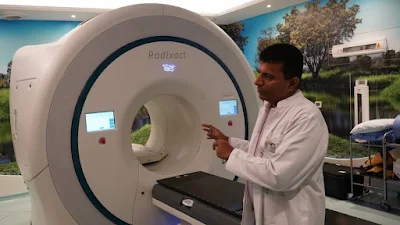In accordance with RB’s continuous commitment to being a socially
responsible organization, RB Durex has signed an agreement with the Planned
Parenthood Federation of Nigeria (PPFN) to help improve the sexual health and
wellbeing of Nigerians, reports NaijaAgroNet.
The scope of the partnership covers Sexual and Reproductive
Health education and increasing consumer access to condoms by opening new
channels and reaching consumers previously unreached.
According to a recent report by World Health Organization
(WHO), ‘Every day, more than one million sexually transmitted infections are
acquired worldwide, and each year an estimated 78 million people are infected,
constituting a major health concern also in Nigeria.’ Sexual Health Education
and Contraception are therefore twin preventive health strategies to curb this.
Research and Real World data reveals that male latex condoms, when used consistently
and correctly, is an effective approach to achieve a reduction in the spread of
sexually transmitted infections and prevent unintended pregnancy.
Rahul Murgai, the Managing Director of RB Nigeria and Dr
Ibrahim M. Ibrahim, the Executive Director of Planned Parenthood Federation of
Nigeria (PPFN) were optimistic that the joint efforts of the two organizations
will help drive the sexual and reproductive health agenda in Nigeria.
Speaking about the partnership with PPFN, Rahul Murgai said,
“RB is excited to partner with PPFN to create scaled awareness and education in
Nigeria on planned-parenthood, maternal health, safe contraception techniques
and targeted reduction in HIV related deaths through the effective and
consistent use of condoms. Through this collaboration, consumers will have the
requisite education and empowerment to improve their Sexual Health with easy
access to Durex- the World number 1 condom brand.”
Over the years RB has been at the forefront for
cause-related initiatives that further the progress of Nigeria on UN
Sustainable Development Goals such as reduction in infant mortality from
preventable diseases such as diarrhea and malaria, improved public health and
sanitation from reduced open defecation problem and now partnering to reduce
HIV related deaths. Its brands, which are popular household names such as
Dettol, Mortein and Harpic, have active partnerships with Federal Ministry of
Health (MoH), Save the Children (STC), Nigerian Medical association which work
to educate new mothers, school children and reach LGAs like Shomolu in Lagos to
promote good healthy habits like handwashing and to build a healthier nation.
The Planned Parenthood Federation of Nigeria (PPFN) is a
national non-governmental organization and a leading advocate and provider of
sexual and reproductive health services. PPFN is a member of the global
movement that strives for universal access to reproductive health services to
all (including poor, marginalized, vulnerable and socially excluded people)
without discrimination. According to Dr
Ibrahim “this partnership will contribute towards PPFN’s objective of expanding
access to quality services particularly for young persons in Nigeria.”
The PPFN and Durex strategic partnership will go a long way
in reducing the spread of HIV/AIDS and other STIs. It will also contribute to
reducing the incidence of unwanted/unplanned pregnancy and unsafe abortion as
well as significantly improving the overall level of health and well-being in
Nigeria.
Uboshe Uboshe/GEE
... Linking agrobiz, sustainable environs, people & technology















